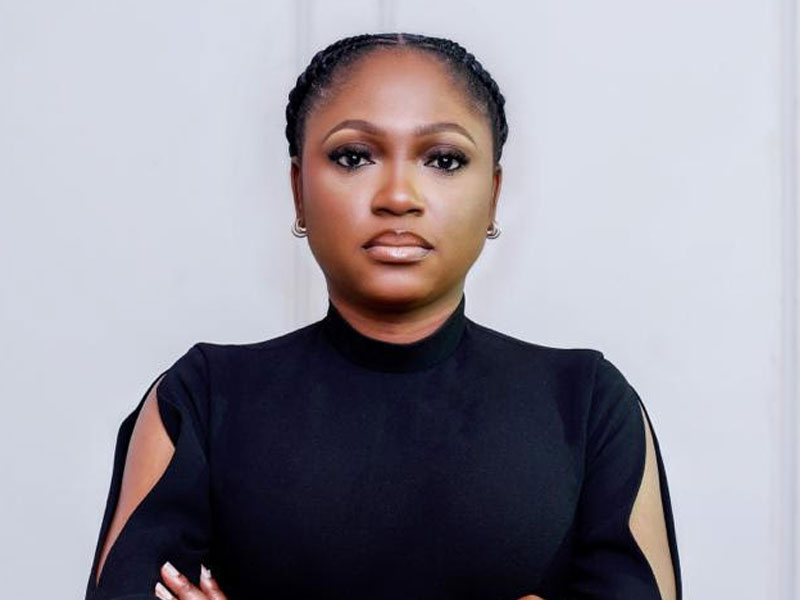“The music business is not just about vibes and viral hits,” she says. “It is a legally structured, profit-driven industry. Without foresight, planning, and sound professional advice, even the most talented artist can lose everything. Understanding the business side of music is no longer optional, it’s survival.”
The Nigerian music industry is booming, commanding stages from Lagos to Los Angeles, influencing global pop culture, and raking in billions. As of 2021, its estimated value stood at over $8 billion and has only continued to grow. Nigerian artists now headline global events like the FIFA Club World Cup, dominate international charts, and sign groundbreaking deals. But while fans dance to the beat, many artists remain trapped in a rhythm of exploitation, victims of contracts they barely understand and rights they unknowingly surrender.
Renowned entertainment lawyer, Yemisi Falaye, with deep expertise in Media and Entertainment Law has pulled back the curtain on the harsh legal realities young creatives face in the industry. In a no-holds-barred conversation, she paints a vivid picture of ambition, legal ignorance, and the high price of stardom.
YOU CAN ALSO READ: “They May Never Work Again” – Aliko Dangote Declares Nigeria’s Refineries a Lost Cause Amid $18 Billion Drain
“Music money is like blood money,” Falaye says. “It’s hard to reach, but when it comes, it floods in, and if you’re not prepared legally, it drowns you.”
Having represented some of the most influential names in Nigerian music and film, Falaye has seen it all, from meteoric rises to painful contract disputes. According to her, the biggest problem lies at the very beginning of an artist’s journey.
“So many creatives rush to ‘blow’ without reading the fine print,” she says. “I remember how Ashake, in his excitement, refused to review his contract before signing with Olamide’s YBNL. It was a dream come true, but one that eventually came with regrets.”
This tendency, she explains, is widespread. Many emerging artists sign legally binding contracts that assign their rights indefinitely, limit their creative control, or bind them to exploitative revenue splits, all in a desperate bid to be discovered.
“Later, when the money starts coming in and their brand grows, they realize they’ve signed away their freedom. But by then, it’s too late, what they agreed to, knowingly or not, is binding.”
Falaye points to the imbalance of power at the heart of these problems. On one side are young, ambitious artists with little financial muscle or legal literacy. On the other side are capital-heavy record labels armed with lawyers and airtight contracts.
“It’s not just bad contracts, it’s a systemic issue,” she emphasizes. “Being talented is no longer enough. Artists need legal protection. The contracts they sign today will determine who owns their masters, who gets the money, and who controls their legacy.”
Signs of rebellion are beginning to surface. Artists like Mercy Chinwo and Seyi Vibez are demanding contractual transparency and taking on their labels in court. But Falaye is quick to point out that these battles often stem from one root cause, a lack of legal advice from the start.
“These artists are not just fighting for money, they’re fighting for rights they gave away without realizing it. If they had lawyers on day one, many of these conflicts wouldn’t exist.”
The stakes are even higher as Nigerian artists break into the international scene. Global contracts come with their own legal complexities and higher risks.
“Take Olamide for example. He didn’t care much for international deals early on, but signing with Empire, a U.S.-based label, transformed his brand and reach. That kind of leap is only possible with solid legal frameworks in place,” she says.
Falaye believes the legal protection of an artist must start before the fame and endorsements.
“The first person a creative should hire is a lawyer, not a manager,” she says firmly. “Even your agreement with a manager should go through a lawyer. Look at P-Square, their elder brother and manager, Jude Okoye, reportedly earned the same split of income as the artists themselves. That should never happen without legal scrutiny.”
Beyond contracts, a new legal threat looms, Artificial Intelligence.
YOU CAN ALSO READ: Ibukun Awosika Charts Bold Global Vision with African Marketplace Initiative
“With AI-generated covers, voice cloning, and autotune-based remixes becoming popular, we are entering uncharted territory. Some of these AI covers get more streams than the originals. It’s a legal time bomb.”
While platforms like YouTube are introducing copyright protections, Falaye warns that Nigerian creatives and stakeholders are dangerously behind.
“We’re not taking AI-related legal risks seriously in this country. But lawsuits are already happening abroad. If we don’t start preparing now, Nigerian artists will be left behind, or worse, exploited again in a whole new way.”
“The music business is not just about vibes and viral hits,” she says. “It is a legally structured, profit-driven industry. Without foresight, planning, and sound professional advice, even the most talented artist can lose everything. Understanding the business side of music is no longer optional, it’s survival.”
Please note that this content is not original EnterpriseCEO material. It has been carefully transcribed from a featured episode of TheRoundUp Podcast where Yemisi Falaye was interviewed, capturing the insightful conversation and expert perspectives shared during their discussion. We present it here to offer our audience a valuable look into the realities faced by artists and professionals in the Nigerian entertainment industry, as explored by notable voices on that platform.










